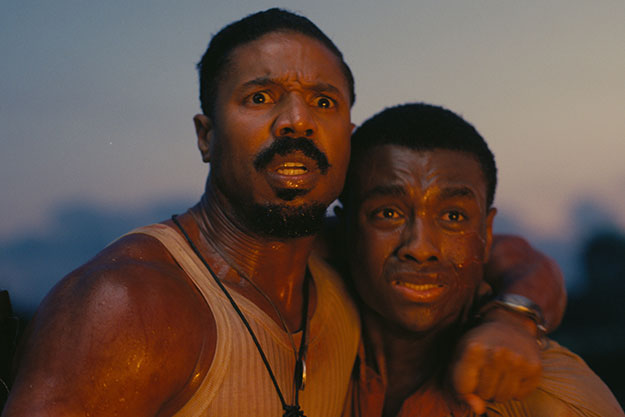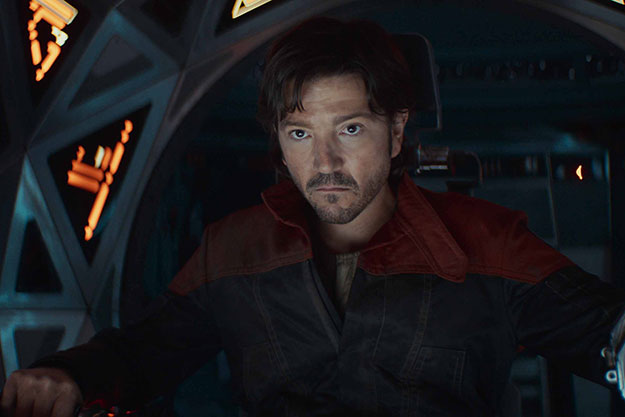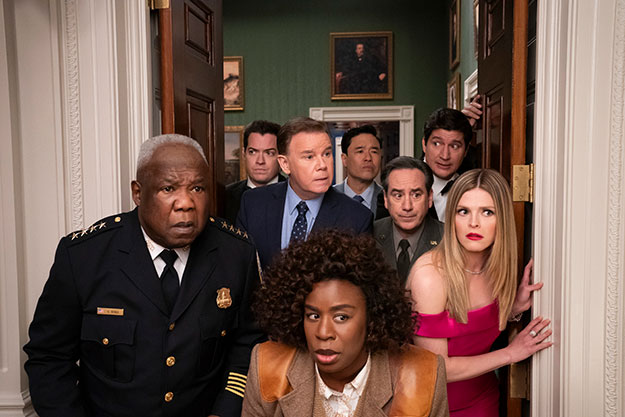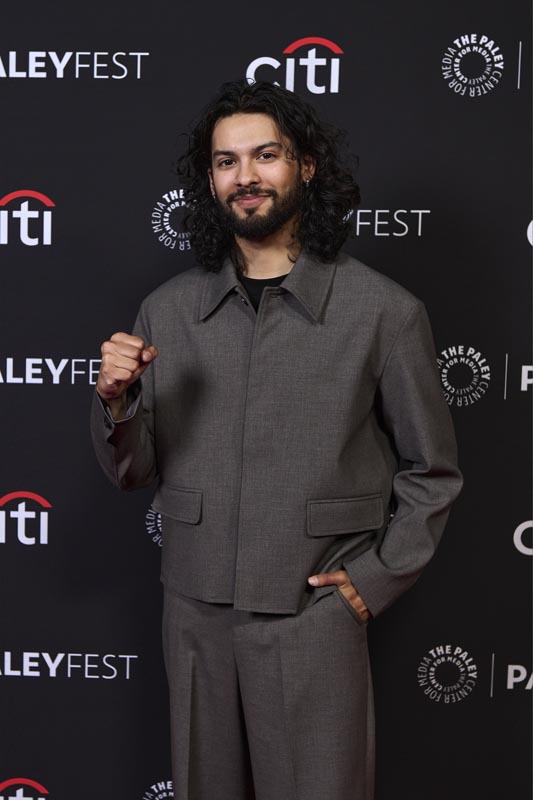Guillermo Del Toro’s Impossible Love Story Overwhelms in its Complexity and Beauty
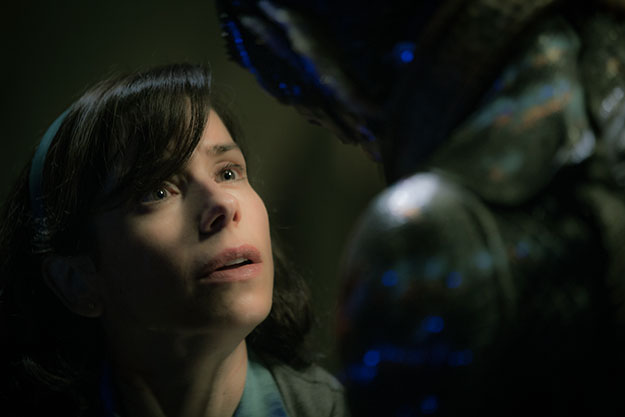
'The Shape of Water' is one of those movies that the more you dissect it the more you start to appreciate it and understand it. While in front of you there's so much to digest that it's sometimes impossible to make sense of it all at first sight, but that's the genius of Guillermo Del Toro. He likes to play with making the unreal real and the extraordinary, ordinary, doing what most don't dare to do, mix-matching genres, putting the one hero story to the side and making all the characters deeply complex with their own storylines and with their own arcs throughout the movie. He is unafraid to infuse political subtext, it is a movie with something important to say in a period where all of the issues these character were facing at that time made people like them revolutionize and transform the world we live in today.
The movie talks about misogyny, about segregation, about disability, sexuality and homosexuality. It talked about the human condition and what are the forces that move people and transform them; power, greed, freedom, passion, creativity, love. The stakes are very high and are very real but just flowing through the in between of the characters as if it's just nothing to be alarmed of. But that is life, we are in between all these heavy issues everyday but we still live and have something to thrive for. Life is very complex and it's not a one hero story, nor a black and white good or bad story.
In its core, the movie it's about love, of what seems like an impossible love. A new generation of romantic complexity like the ones we are all facing in this period in time, where the world is more open and globalized, and new ways of connecting keep evolving. This is a romantic love story with a happy ending. 'The Shape of Water' stars Sally Hawkins as the mute maid leading lady Elisa, Octavia Spencer as the maid Zelda and co-worker of Elisa, Richard Jenkins as Giles the gay guy that lives across Elisa, Michael Stuhlbarg as the misogynist and abusive NASA Colonel Richard Strickland, Michael Shannon as the passionate Russian double agent and scientist Dr. Hoffstetler and Doug Jones as the Amphibian Man and leading man.
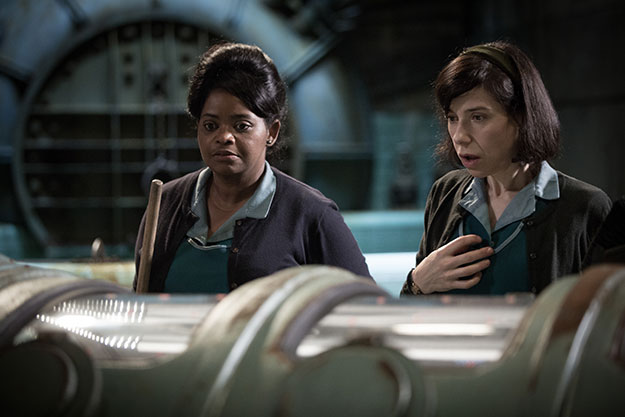
Octavia Spencer talking about her character where she plays a maid (Zelda) that works in NASA and she referenced jokingly that she has played a maid in "The Help" and also a NASA worker in "Hidden Figures" but now she is a maid that works at NASA. We asked her about what drove her to this film and she told us that, "I fell in love with the love story because I'm a hopeless romantic but I also loved the political implications because you know he has two main characters who can't talk. And he chooses an African-American woman who's a part of the invisible realm of people because she's you know of the working class sort and a closeted gay man. And during the 60s I mean two of the most ostracized groups. So I was in love at that point anyway. But to suspend my belief with this love story and then how it ends and you're like there is a perfect mate out there for everyone. That's what I fell in love with."
When we asked her about how it felt to work against a character that was mute she shared, "Well it was actually very normal to me because I have a brother who is a deaf mute and he didn't want me and my siblings to learn to sign because he wanted us to talk to him and so he read our lips and in anything Matt pointed that we're not you know getting across, we would write to him. And I feel kind of bad, like last year after I learned all of this stuff because I only learned the dialogue in this scene, I'd already know the alphabet from him and anything that I didn't I could just spell out. But it was great to go home for Christmas when I had it fresh on my mind to do a little signing, so he was surprised. But so for me it didn't feel one sided at all because I'm used to a person who can't speak words but always convey feelings. I'm very used to that so I felt very natural..."
Spencer continued, "...But as an actor though who is dyslexic and who needs the vocal cues or the audio cues from other people on the dialogue to learn my lines, it was interesting; in all of my scenes with her, they were just writing monologues and sometimes, you know, if they were about Brewster then I knew what they were about... It was really difficult to learn those passages, honestly because you also had to learn it by doing something because we're cleaning, and all of my dialogue with her, the majority of it was at work. So when I learned lines, you know, you sit there and you learn them sitting down. And I had to learn them standing up folding clothes, I had to learn them mopping; you know, all of the stuff that I was doing in the movie. It was really interesting so I had to change my technique for this movie. Glad to go back to the other way now."
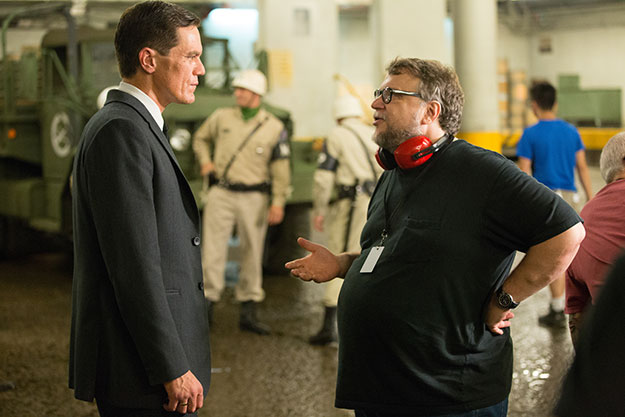
And when asked about how the characters became the voice for this mute maid she said, "Well I think that all of the characters are an extension of Elisa. She's the glue and she's different. It's just that the whole movie, every person, every symbol, every metaphor is about love. And she's different with me. And she has Giles. At home he is her voice, at work I am her voice. So yeah I believe we're all extensions of Elisa."
The movie creates a safe space for us, the others the different ones and at the end of the day I relate with the monsters more that with the cast said one of the reporters adding that for this film Guillermo included Love and Monsters in one same platform and she wanted to know a little bit more about those two interchanging of love and monstrosity.
Del Toro explained, "Well what I think is more than monstrosity it's just different. You know I think the monsters in movies for me, at a very young age became figures of spiritual recognition. Why. Because monsters are the embodiment of imperfection. They walk in and they don't pretend to be perfect, they can't. They're so different. So they're unapologetic about their imperfection. I think that the essence of love is to know and embrace imperfection and the essence of fear is to seek control and perfection. So look at the bad guy in the movie, the antagonist seeks complete control with the woman he's married to, the woman that works for him, his environment, the way he is, he's whole persona. You know he's all control. And it's impossible. Nobody, nobody's perfect. Everybody is imperfect and monsters are an embodiment of compassion, understanding and love. This is why I am what I am. You know and that's what I think, that's what we all breathe. Not in the black or the white but we breathe in the gray. You know we exist in the greys, is just a matter of degrees."
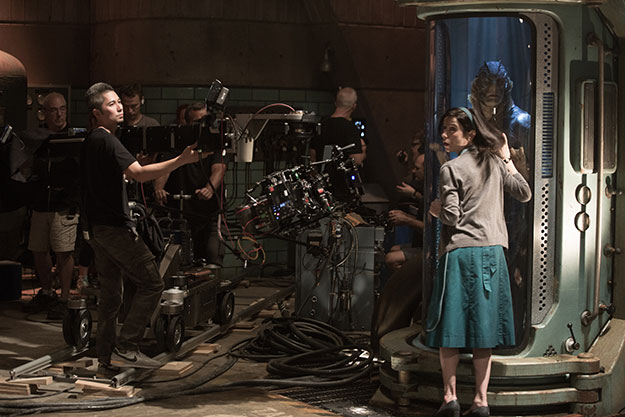
And he continued saying, "That's the way I think that we work, the way we communicate socially now is so black or white. You know, I think it's permeating this discourse of hate, it's permeating every arena. I want to say, can we look at each other with love rather than fear, you know, can we look at each other... We'll look at the creature... Each character looks at it and some are running away, for the antagonist is a filthy thing that came from South America, for the scientist is a miracle of nature, the embodiment of everything that goes good in his science, for Giles it's a god from the river that is going to give him hair. And for Elisa is the recognition of her essence and her loneliness that she was not aware of until she met him."
Love and fear and how we project ourselves into others, the human condition, what drives us and how we should breath in the greys and embrace the complexity of life. The film with an spectacular cinematography overwhelms us in this chaotic and unapologetic but intrinsically directed orchestration of genres, storylines and subtexts that it does deserve a long discourse to completely grasp all that it contains.
The Shape of Water in theaters now.






